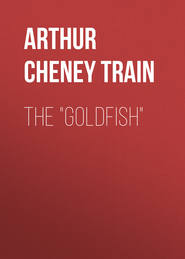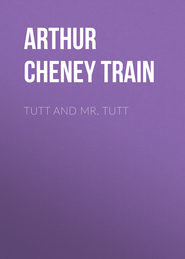По всем вопросам обращайтесь на: info@litportal.ru
(©) 2003-2024.
✖
Courts and Criminals
Автор
Год написания книги
2019
Настройки чтения
Размер шрифта
Высота строк
Поля
One of the ladies referred to testified as follows:
"Can you identify that diamond?"
"I am quite sure that it is mine:"
"How do you know?"
"It looks exactly like it."
"But may it not be a similar one and not your own?"
"No; it is mine."
"But how? It has no marks."
"I don't care. I know it is mine. I SWEAR IT IS!"
The good lady supposed that, unless she swore to the fact, she might lose her jewel, which was, of course, not the case at all, as the sworn testimony founded upon nothing but inference left her in no better position than she was in before.
The writer regrets to say that observation would lead him to believe that women as a rule have somewhat less regard for the spirit of their oaths than men, and that they are more ready, if it be necessary, to commit perjury. This may arise from the fact that women are fully aware that their sex protects them from the same severity of cross-examination to which men would be subjected under similar circumstances. It is today fatal to a lawyer's case if he be not invariably gentle and courteous with a female witness, and this is true even if she be a veritable Sapphira.
In spite of these limitations, which, of course, affect the testimony of almost every person, irrespective of sex, women, with the possible exception of children, make the most remarkable witnesses to be found in the courts. They are almost invariably quick and positive in their answers, keenly alive to the dramatic possibilities of the situation, and with an unerring instinct for a trap or compromising admission.
A woman will inevitably couple with a categorical answer to a question, if in truth she can be induced to give one at all, a statement of damaging character to her opponent. For example:
"Do you know the defendant?"
"Yes, to my cost!"
Or
"How old are you?"
"Twenty-three,—old enough to have known better than to trust him."
Forced to make an admission which would seem to hurt her position, the explanation, instead of being left for the re-direct examination of her own counsel, is instantly added to her answer then and there.
"Do you admit that you were on Forty-second Street at midnight?"
"Yes. But it was in response to a message sent by the defendant through his cousin."
What is commonly known as "silent cross-examination" is generally the most effective. The jury realize the difficulties of the situation for the lawyer, and are not unlikely to sympathize with him, unless he makes bold to attack the witness, when they quickly chance their attitude.
One question, and that as to the witness's means of livelihood, is often sufficient.
"How do you support yourself?"
"I am a lady of leisure!" replies the witness (arrayed in flamboyant colors) snappishly.
"That will do, thank you," remarks the lawyer with a smile. "You may step down."
The writer remembers being nicely hoisted by his own petard on a similar occasion:
"What do you do for a living?" he asked.
The witness, a rather deceptively arrayed woman, turned upon him with a glance of contempt:
"I am a respectable married woman, with seven children," she retorted. "I do nothing for a living except cook, wash, scrub, make beds, clean windows, mend my children's clothes, mind the baby, teach the four oldest their lessons, take care of my husband, and try to get enough sleep to be up by five in the morning. I guess if some lawyers worked as hard as I do they would have sense enough not to ask impertinent questions."
An amusing incident is recorded of how a feminine witness turned the laugh upon Mr. Francis L. Wellman, the noted cross-examiner. In his book he takes the opportunity to advise his lawyer readers to "avoid the mistake, so common among the inexperienced, of making much of trifling discrepancies. It has been aptly said," he continues, "that 'juries have no respect for small triumphs over a witness's self-possession or memory!' Allow the loquacious witness to talk on; he will be sure to involve himself in difficulties from which he can never extricate himself. Some witnesses prove altogether too much; encourage them and lead them by degrees into exaggerations that will conflict with the common-sense of the jury."
Mr. Wellman is famous for following this precept himself and, with one eye significantly cast upon the jury, is likely to lead his witness a merry dance until the latter is finally "bogged" in a quagmire of absurdities. Not long ago, shortly after the publication of his book, the lawyer had occasion to cross-examine a modest-looking young woman as to the speed of an electric car. The witness seemed conscious that she was about to undergo a severe ordeal, and Mr. Wellman, feeling himself complete master of the situation, began in his most winsome and deprecating manner:
"And how fast, Miss, would you say the car was going?"
"I really could not tell exactly, Mr. Wellman."
"Would you say that it was going at ten miles an hour?"
"Oh, fully that!"
"Twenty miles an hour?"
"Yes, I should say it was going twenty miles an hour."
"Will you say it was going thirty miles an hour?" inquired Wellman with a glance at the jury.
"Why, yes, I will say that it was."
"Will you say it was going forty?"
"Yes."
"Fifty?"
"Yes, I will say so."
"Seventy?"
"Yes."
"Eighty?"
"Yes," responded the young lady with a countenance absolutely devoid of expression.
"A hundred?" inquired the lawyer with a thrill of eager triumph in his voice.
There was a significant hush in the court-room Then the witness, with a patient smile and a slight lifting of her pretty eyebrows, remarked quietly:









